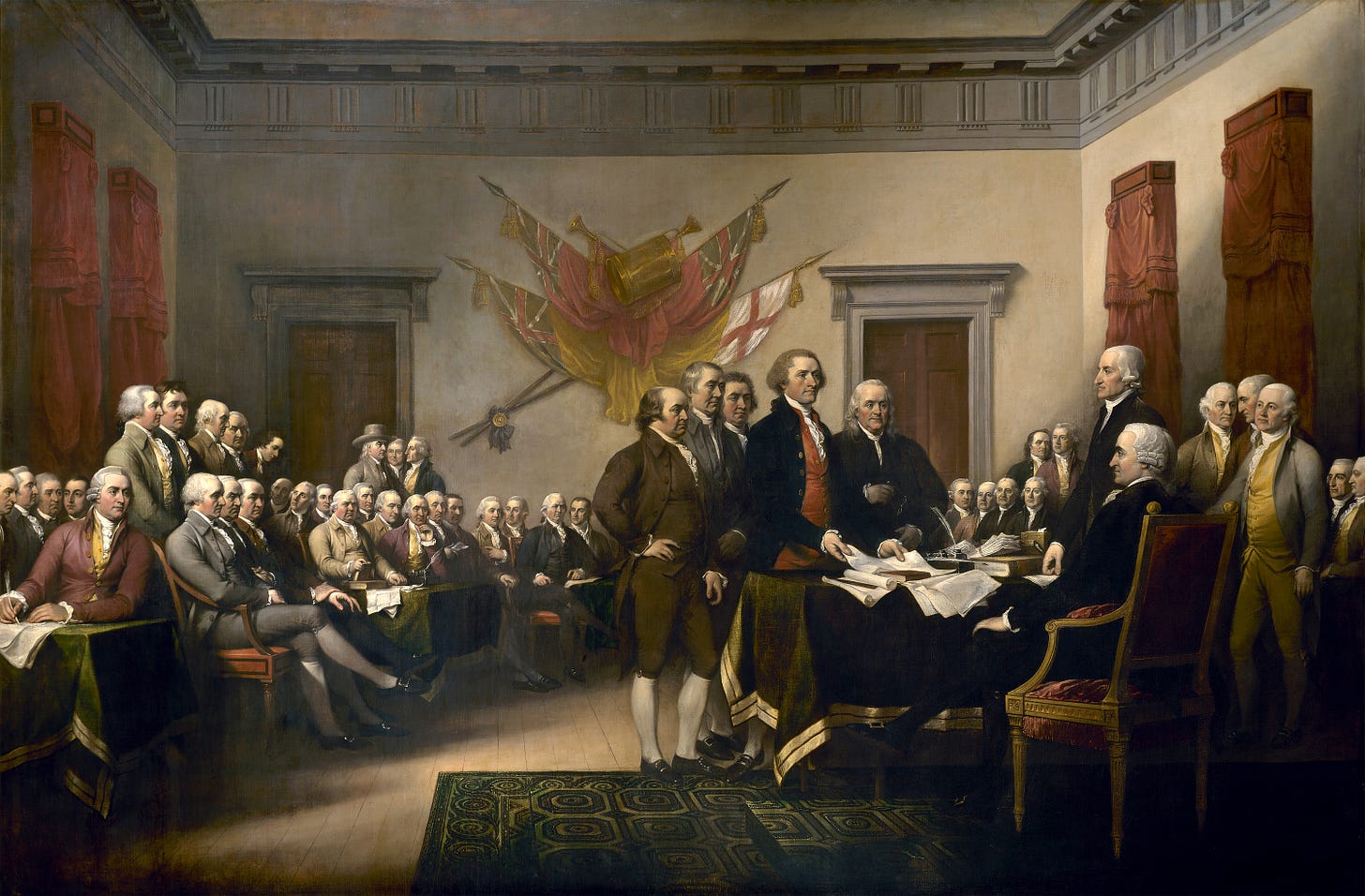Happy Independence Day!
A note on the 4th of July, 2024
In 1776, Thomas Jefferson wrote the Declaration of Independence, a document that we celebrate today for its most famous words, “We hold these truths to be self-evident, that all men are created equal, and are endowed by their Creator with certain inalienable rights, among these are Life, Liberty, and the pursuit of Happiness.”
Less often quoted is the litany of grievances that led Jefferson and his band of colonists to cast off British rule, but some are particularly worth repeating today, for they describe an all-too-familiar arrogation of executive power.
“He has obstructed the Administration of Justice, by refusing his Assent to Laws for establishing Judiciary powers.
He has made Judges dependent on his Will alone, for the tenure of their offices, and the amount and payment of their salaries.
He has erected a multitude of New Offices, and sent hither swarms of Officers to harrass our people, and eat out their substance.
He has affected to render the Military independent of and superior to the Civil power.
For taking away our Charters, abolishing our most valuable Laws, and altering fundamentally the Forms of our Governments:
For suspending our own Legislatures, and declaring themselves invested with power to legislate for us in all cases whatsoever.”
And last, but not least, the final grievance begins with the words
“He has excited domestic insurrections amongst us…”
Together, these statements describe the actions of a monarch, a king by divine right, unelected, immune from prosecution, unaccountable, and unrestrained by law or elected body. It is perhaps the pinnacle of irony that, on July 1, 2024, the Supreme Court granted immunity against prosecution to the President for anything that might be considered an official action. In doing so, the Court ignored the clear intent of Article I, Section 3 of the Constitution, whose last sentence unambiguously reads, “but the Party convicted (in an impeachment trial) shall nevertheless be liable and subject to Indictment, Trial, Judgment and Punishment, according to Law.” As Justice Sonya Sotomayor writes in her vigorous dissent,
“Today’s Court, however, has replaced a presumption of equality before the law with a presumption that the President is above the law for all of his official acts.”
On July 4, 1776, a group of colonists that included four residents of Maryland adopted and later that year signed Jefferson’s Declaration, placing themselves in opposition to unaccountable rulers. They took their actions with no guarantee of success, in the face of significant domestic opposition, and without assurance support from abroad. They took a bold risk, calmly accepted the possible outcomes, and proceeded over the coming two decades to create the American experiment that we still celebrate — and seek to improve — today.
In the musical Hamilton, the character of King George III casually sings of the success
of the colonial revolt, dismissing their new Republic and blithely stating “You’ll be back.”
One might be forgiven for thinking that, in today’s context, he meant that we’d return to authoritarian governance, to rule by a king. On this Independence Day, join the Harford Democratic Party as we declare without hesitation and in loud, proud voices, “No we won’t.”
A Correction - Alsobrooks Meet and Greet Date is July 16!
In yesterday’s bulletin, an incorrect date was given for the Alsobrooks Meet and Greet in the email body. The correct date of her Meet and Greet is Tuesday, July 16, 2024, from 5-7 pm.



